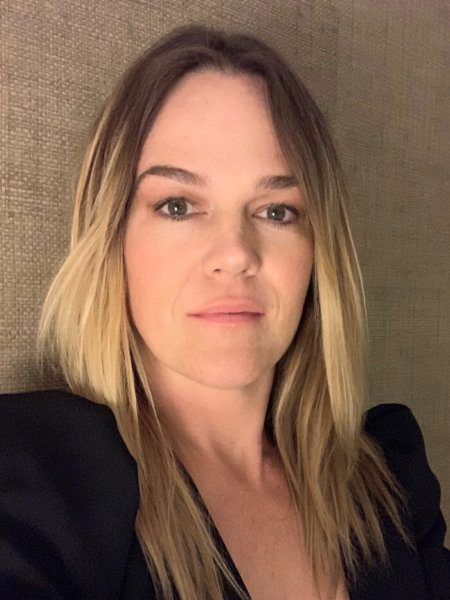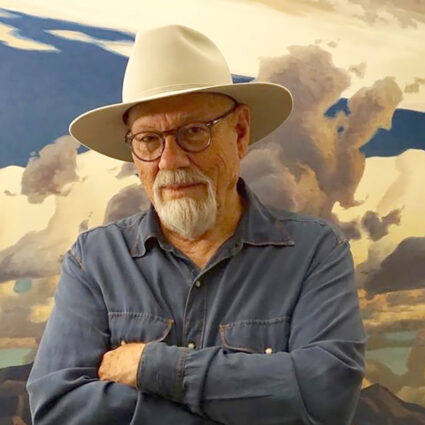As the state’s film industry continues to grow, the New Mexico Film Office advocates for safety and inclusion.

In an industry synonymous with power dynamics and lack of diversity (#MeToo, Time’s Up, #OscarsSoWhite), the all-women team at New Mexico Film Office is doing things differently. Part of New Mexico’s Economic Development Department, the Film Office is signaling their support for safety and diversity on New Mexico film and television sets with a new initiative to help train New Mexicans in Intimacy Coordination.
An intimacy coordinator (IC) is a relatively new role that has risen significantly since the #MeToo movement. On set, an IC is present to establish and ensure adherence to each actor’s boundaries during any scene involving intimacy, as well as to assist in the authentic portrayal of intimacy. Having professionally-trained support when filming intimate scenes is generally not required on film sets, but increasingly deemed necessary.
Such was the thinking of Amber Dodson, Director of New Mexico Film Office, who along with her team is working to build a film industry that values safety and inclusion. Dodson, who became the director of the state’s film office in 2020 after being the Film Liaison for the City of Albuquerque, spoke with industry experts to learn what her office can do to promote safety in the industry.

“After more research and talking to intimacy coordinators and directors and producers who have worked with ICs, it became crystal clear that this was something we need to have in New Mexico,” Dodson said. “Something that we should put our Workforce Development Funds behind, something that we should get New Mexicans trained up to participate in and to help foster this new role, and to help New Mexico be a leader in the next era.”
The Film Office is collaborating with the Intimacy Professionals Association, a Los Angeles-based agency and training center for intimacy coordinators, to provide scholarships for 60% of the $6,750 tuition for up to three New Mexicans who are accepted into the program. The training lasts four months and educates students in topics including consent, boundaries, conflict negotiation, trauma awareness, being an advocate for LGBTQIA+ cast and crew, learning the legal language in regards to nudity riders and union guidelines, and more.
The Intimacy Professionals Association is run by Amanda Blumenthal, described by Dodson as one of the top two intimacy coordinators in the world. A few days before the application window closed, Blumenthal said about two-thirds of the applicants are New Mexico residents. She said that with the financial barrier at least partially removed, the applicant pool has been significantly more diverse.

While participating in the training can’t guarantee work, Dodson said having local ICs available encourages hiring through the New Mexico film incentive program. Production companies and studios receive rebates on their productions when they hire local cast and crew, as well as local businesses. In 2019, after a bill extending tax credits was passed, direct spend in New Mexico was $525 million. Dodson said, “there’s no concern about lack of work.”
As New Mexico’s film industry continues to grow—Netflix’s largest studio in North America is now in Albuquerque, and NBC Universal also signed a studio deal in 2019—the Film Office is working to set the bar higher for industry standards, and have an approach to economic development that values well-being.

“Part of economic development from our perspective is increasing the quality of life for people,” Dodson said. “We really believe in not just looking at the dollar signs, but the whole picture, the holistic view.”
The Film Office has also worked with the Background Actors Association of New Mexico to support their Bill of Rights, which provides background actors with basic but necessary rights on set, such as being provided with water, or being provided with shelter in bad weather. “It’s kind of sad we have to lay this out, but we felt it’s incredibly critical to do so. The Bill of Rights, in cooperation with my office and other state departments, is on our website, and for each right there’s a supporting article, whether that’s the Department of Workforce Solutions or OSHA. So when productions come to New Mexico they see that we’ve done our homework, this is how we expect background actors to be treated, and if they are not treated accordingly we do not hesitate to contact OSHA or the Department of Workforce Solutions. Because these are basic rights. And that’s something that has not been done, at least domestically.”



